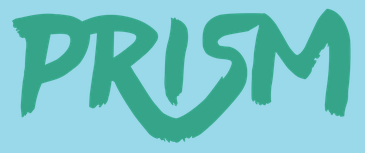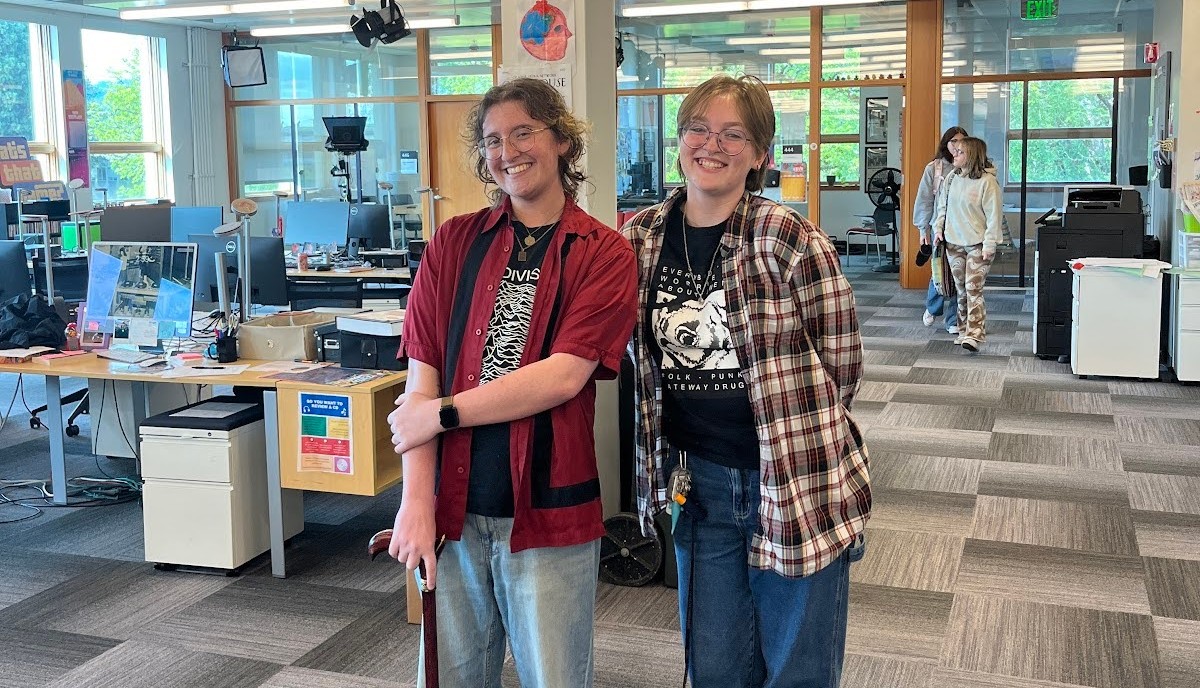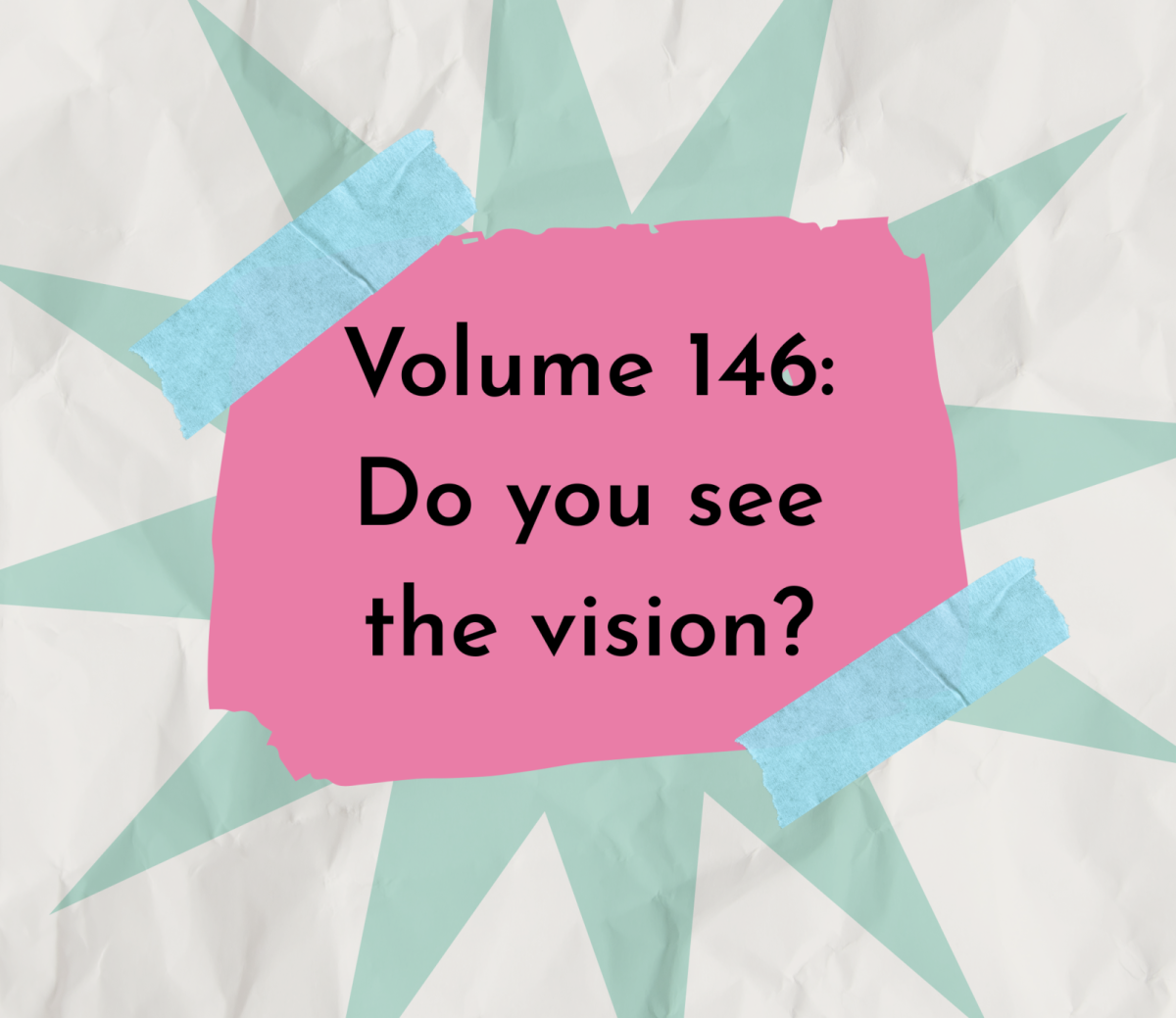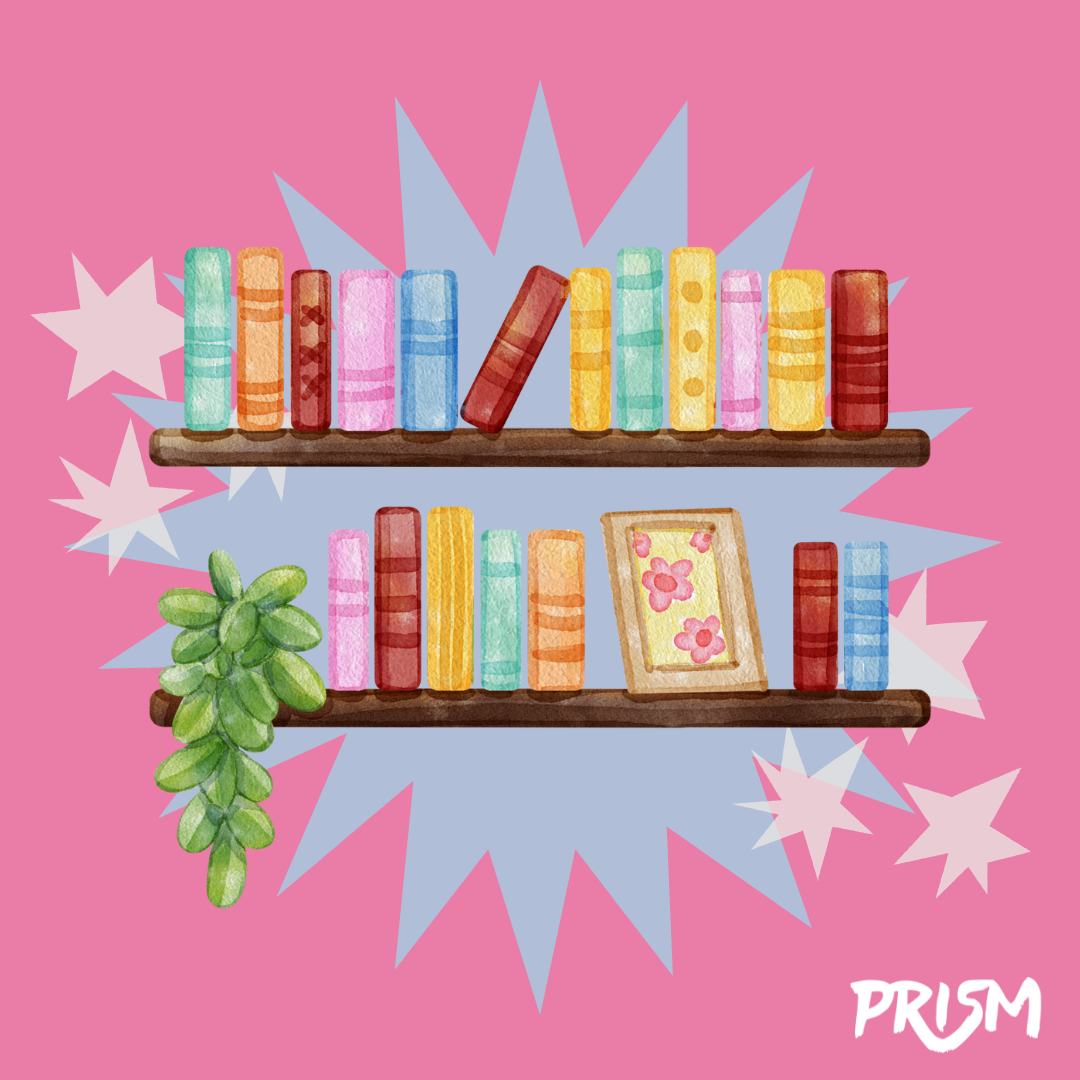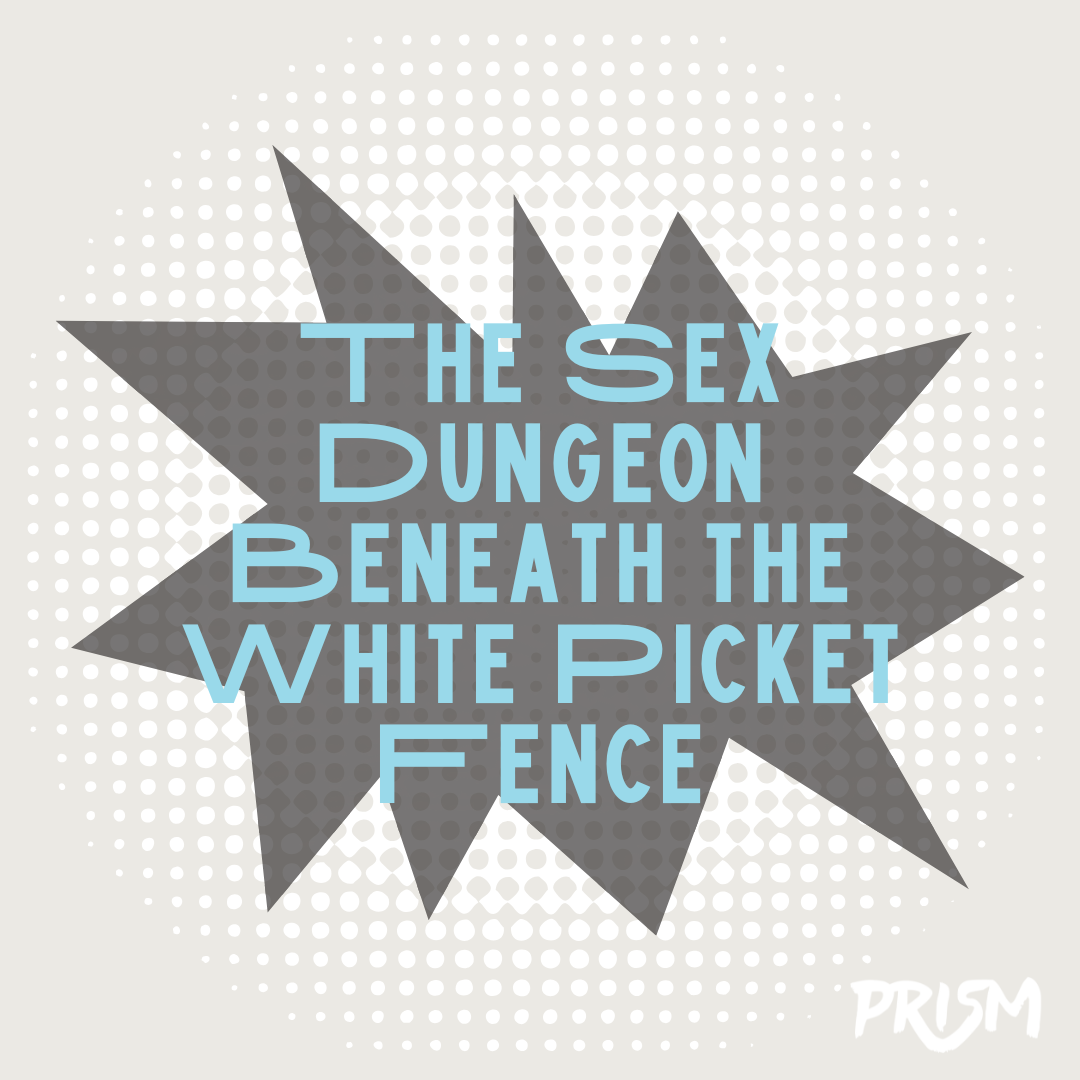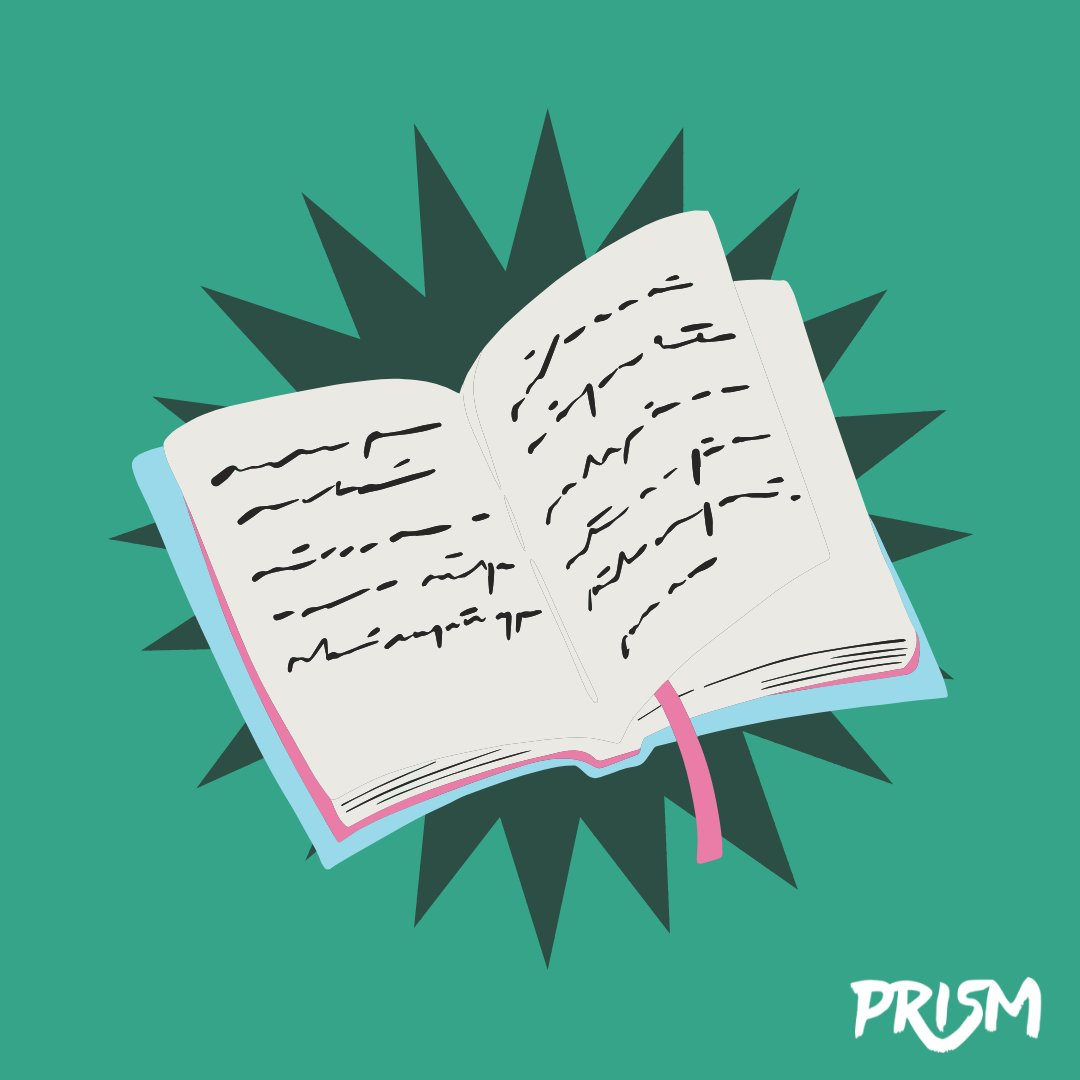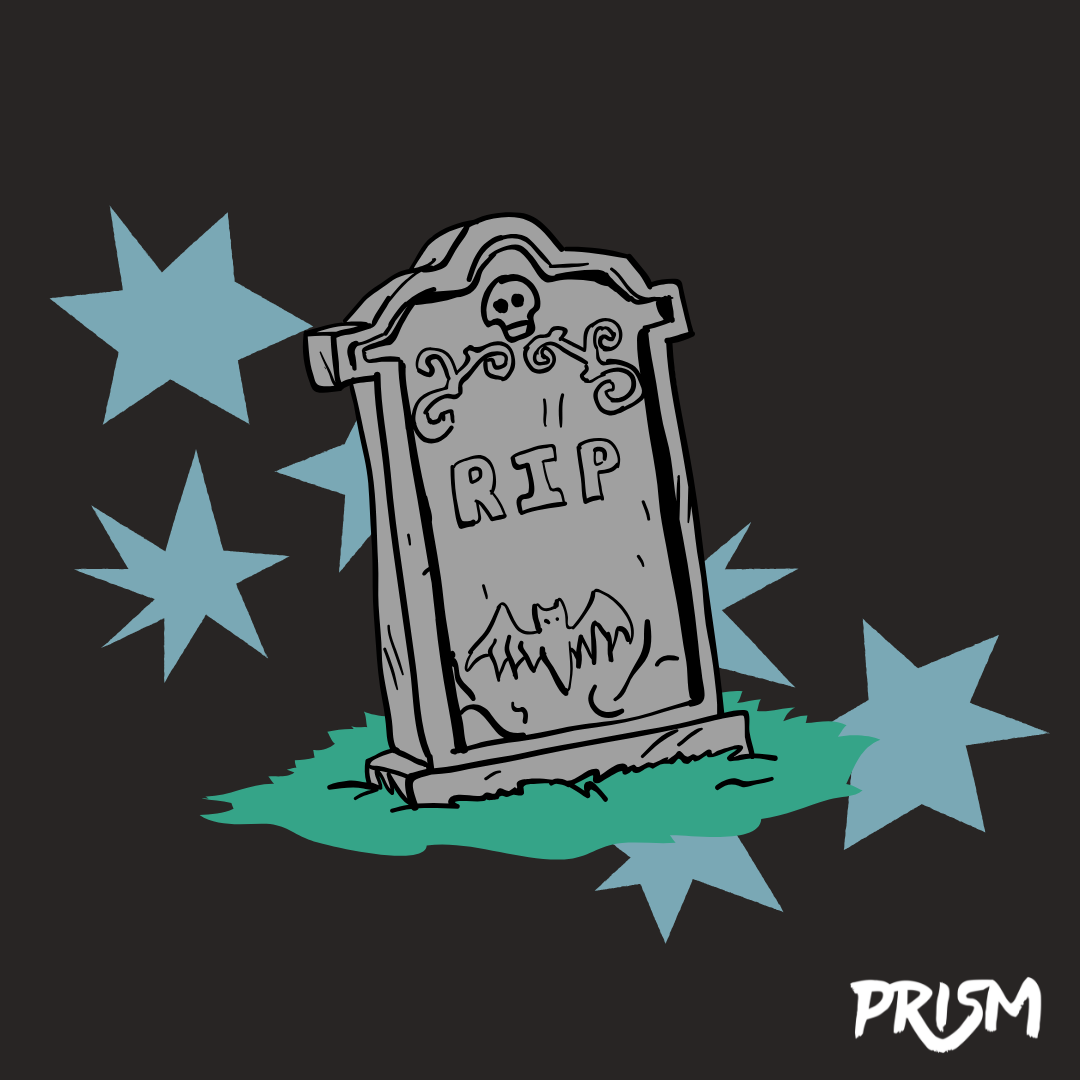Editor’s Note: The writer has changed their opinion on one of the books reviewed in this blog. Click here to read Tate’s updated position on “The Midnight Library”.
If you have an iPhone and spend an inordinate amount of time on your Notes app like I do, you might have noticed an odd little feature at your disposal: You can make a table.
Now, when I get my pesky little hands on any such data collector, I am determined to stretch it to its absolute limits. Which is why, for the past three years, I have diligently kept track of every single book I’ve read during the year in an increasingly bizarre table in my Notes app.
Every year, I seem to find a new category to keep track of, and every year, I almost crash the app with my stupidity. But, spending an inordinate amount of time on my Notes app, carefully crafting proof of my insanity, means I am inordinately prepared for such an endeavor as regaling my reviews for all the books I read in 2024.
You’re welcome.
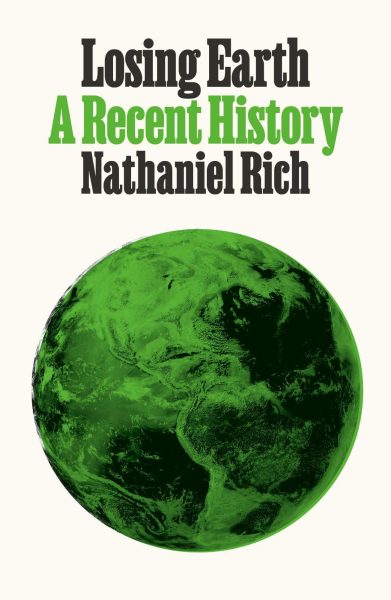 “Losing Earth: A Recent History” by Nathaniel Rich
“Losing Earth: A Recent History” by Nathaniel Rich
Genre: Biography, Nonfiction, Climate Science
4.25/5 — Having read a lot of science writings on climate change and the sixth extinction, Rich offers the human side we’ve been missing. Clear and concise, Rich introduces the heroes, villains and victims, as he puts it, of the climate crisis. These people risked their careers and their families to make people see the danger, and were ignored or pushed back every step of the way. It is devastating, but it is not yet too late. I would absolutely recommend anyone pick up this book.
(us.macmillan.com)
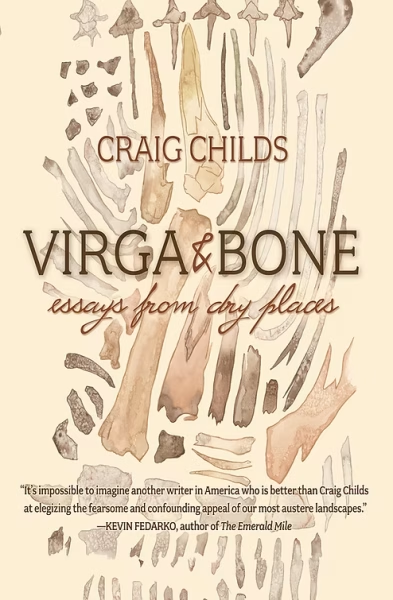 “Virga & Bone: Essays from Dry Places” by Craig Childs
“Virga & Bone: Essays from Dry Places” by Craig Childs
Genre: Nature Writing, Essay Collection
4/5 — This is a love letter to the desert, its history and its people — plain and simple. It’s beautiful to read an emotional plea for conservation, as well as a poetic analysis of the privilege of war and temporary inhabitance. While I adore many of the essays in this collection, my favorites being “Balances Rocks” and “Bone,” the pacing and style of others were not my favorite, bringing the overall rating down, though only slightly.
(www.torreyhouse.org)
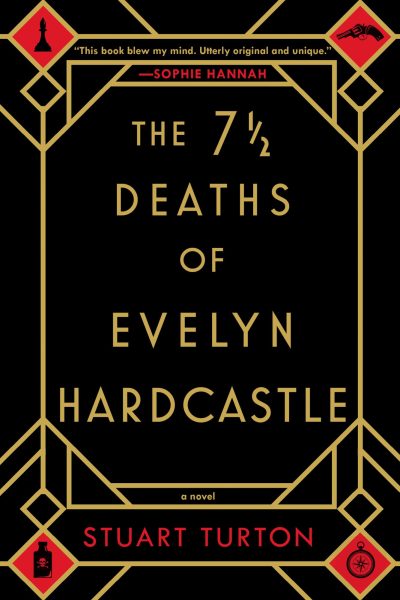 “The 7½ Deaths of Evelyn Hardcastle” by Stuart Turton
“The 7½ Deaths of Evelyn Hardcastle” by Stuart Turton
Genre: Murder Mystery Novel, Fiction
3.75/5 — “Clue” meets “Happy Death Day.” The characters and relationships are fairly compelling and the twists are well set up. I couldn’t put it down. I do think the ending wasn’t the most satisfying, and at a certain point the plot twists — though well-supported — began happening just for the sake of it. But, it was a very fun read. From an unreliable narrator to a nebulous mentor who can only be classified as morally gray at best, everyone is capable of murder, it’s only a case of solving the right one. I would recommend this book to anyone looking for a longer but fast-paced murder mystery to speedrun on a cold day.
(goodreads.com)
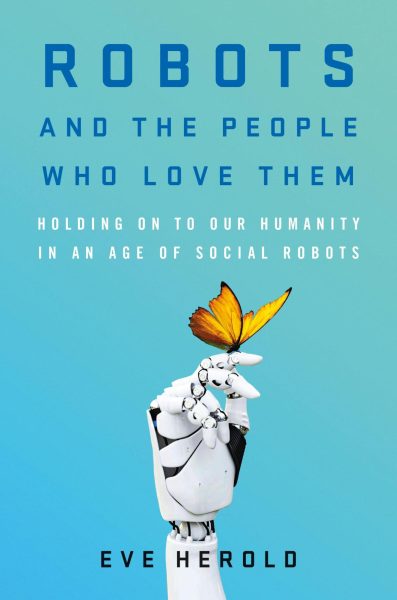 “Robots and the People Who Love Them: Holding on to Our Humanity in an Age of Social Robots”by Eve Herold
“Robots and the People Who Love Them: Holding on to Our Humanity in an Age of Social Robots”by Eve Herold
Genre: Nonfiction, Science Writing
4/5 — Though slow to start and not as effective in its stylistic choices until a chapter or two in, Herold’s style hit its stride and achieved the humanity necessary to talk about robots. Robots aren’t my branch of science, but the philosophy and ethics are, and Herold expertly approaches and introduces complex issues like the uncanny valley, sex robots and incels, and the ramifications of bloodless wars; her voice is always present, but so are her citations. I would absolutely recommend you pick this up, no matter your interests; like climate change, robots are an increasingly prevalent sign of the times.
(us.macmillan.com)
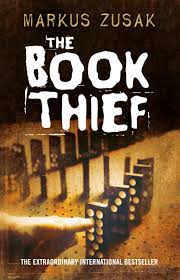 “The Book Thief” by Markus Zusak
“The Book Thief” by Markus Zusak
Genre: Historical Fiction, Novel
5/5 — I don’t even know where to begin with this book. Do I start with the words or the people — is there a difference? It’s easiest to start with Death; this is the kind of Death we must imagine, one haunted by humans, with gentle hands and an overbearing boss called War, not a horseman of the apocalypse but a side effect. He is empathetic and doesn’t want to be and understands the weight of words and their colors — he is the only Death allowed to come for Liesel Meminger. Rosa, Rudy, Max, Hans and Liesel will live with me forever. Zusak balances the haunting horrors of war with the grit of a teenage girl. I am under the firm belief that this book is a must-read for everyone.
(32books.com)
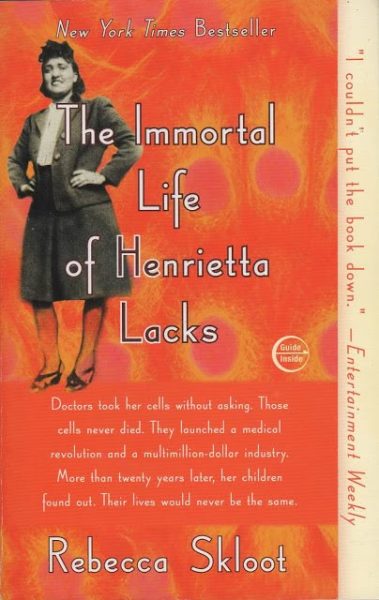 “The Immortal Life of Henrietta Lacks” by Rebecca Skloot
“The Immortal Life of Henrietta Lacks” by Rebecca Skloot
Genre: Biography, Science Writing
4/5 — Skloot approaches the humans and the science in this book with an abundance of compassion. Skloot takes the time to describe the cells and the experiments entailing them to both the reader and the Lacks family. The author addresses and understands that she may not be the ideal person to write this book, but she is the one that put in the time trying to understand the family and the faith behind the immortal Henrietta Lacks. Uncovering in plain order the questionable, both ethically and morally, way Henrietta Lacks’s cells were harvested, the loss and hardships of the Lacks family, and the lasting impact of the lives saved and chaos caused by HeLa cells, Skloot ensures that no one will forget Henrietta Lacks’s name again. I would recommend this book for sure, it’s a deeply emotional read and an important one when it comes to uncovering the lost faces of modern science.
(pinterest.com)
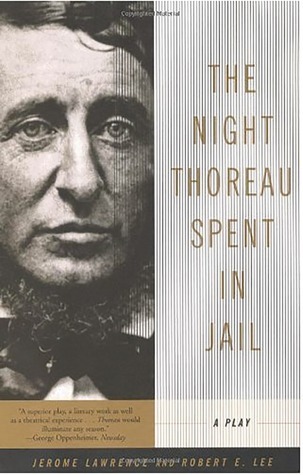 “The Night Thoreau Spent in Jail” by Jerome Lawrence and Robert E. Lee
“The Night Thoreau Spent in Jail” by Jerome Lawrence and Robert E. Lee
Genre: Play, Historical Retelling
4.5/5 — Listen, I’m a little insane when it comes to Henry David Thoreau and have been since I first read “Walden” and “Civil Disobedience” in eighth grade. To see Thoreau portrayed by Lawrence and Lee as a revolutionary — stubborn in his convictions, loud — is exactly the backdrop needed to understand his lectures, maybe too loose and patient to have teeth. The staging is brilliant, barebones and open, freely moving between open sky and prison, allowing narratives to merge and Thoreau to display his timelessness in action.
(goodreads.com)
 “A Buzz in the Meadow: The Natural History of a French Farm” by Dave Goulson
“A Buzz in the Meadow: The Natural History of a French Farm” by Dave Goulson
Genre: Nature Writing, Nonfiction
4.5/5 — Goulson swings happily around the line between appealing to our ethos and pathos, establishing his well-earned credibility and his equal-footed cluelessness. The deep dive into the small creatures this world has to offer is both deeply empathetic and quietly angry, and rightly so. We must consider what poisons leach and what garbage smells and what bees need, in the end. “Go outside, look and listen. The wack-wack bird is calling. For how much longer will we hear its lonesome cry” (p.252)? I would absolutely recommend this book to anyone looking to watch a British entomologist help native flora and fauna recolonize a derelict French farm, by various methods and with various results.
(penguin.co.nz)
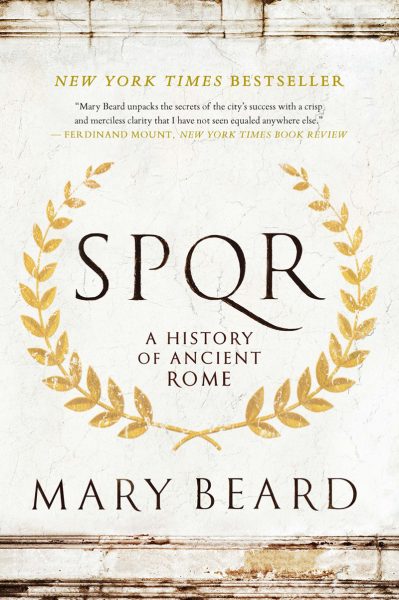 “SPQR: A History of Ancient Rome” by Mary Beard
“SPQR: A History of Ancient Rome” by Mary Beard
Genre: Nonfiction, History
3.5/5 — Listen, I am one of the nerdiest Latin Nerds™ to ever Latin, but this book is a dense tome. And, honestly, it has to be. Beard clearly has the passion necessary, and honorable, to write a history of “the first millennium” of the Roman Empire. Though long winded at times, “SPQR” is as short as it can possibly be and as long as it has to be to get the value out of Rome’s characters and caricatures, its many languages and writers, its leaders and buildings and “enemies.” There is as much to learn from Rome by example as there is to learn on the contrary, and Beard is here to teach you that — if you’re up for it. I would recommend this with a very large caveat that you must know what you’re getting into and be absolutely ready to be overwhelmed by the sheer amount of information within these 536 pages — plus many more of notes and references.
(goodreads.com)
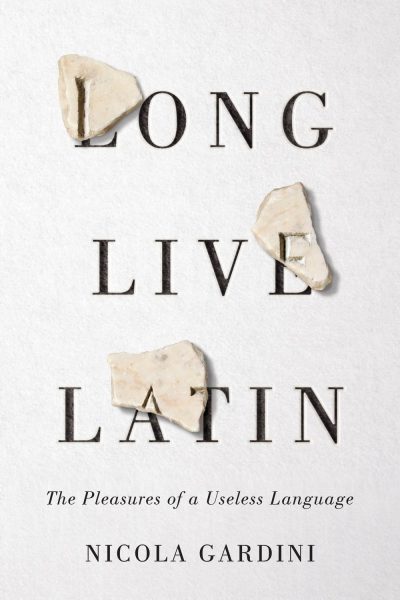 “Long Live Latin: The Pleasures of a Useless Language” by Nicola Gardini, translated from Italian by Todd Portnowitz
“Long Live Latin: The Pleasures of a Useless Language” by Nicola Gardini, translated from Italian by Todd Portnowitz
Genre: Linguistics, Nonfiction
4.75/5 — What a lovely experience it is to read a book about the value of translation, of working through unfamiliar vernaculars and long lost references, that has been translated into your language. I have loved Latin for years and Gardini, and Portnowitz, has shown me why — what keeps me coming back: the love, the light (or lack thereof, e.g. “umbra”), the lineage. There is so much history that is valuable in its own right. As Gardini says: “The ancients speak for the ancients. And what we learn, in essence, by discovering who they are, is to speak for ourselves. We too, in a sense, become a little ancient; it isn’t they who become modern” (p.234). Am I biased because I love Latin? Yes. Do I also wholeheartedly believe you should read this book? Yes. For anyone curious about one of the lineages of their own language (whether English or the Romance languages), curious about another perspective on ancient Roman history, or at all curious about what it means to be a dead language — pick up this book. I beg of you.
(toddportnowitz.com)
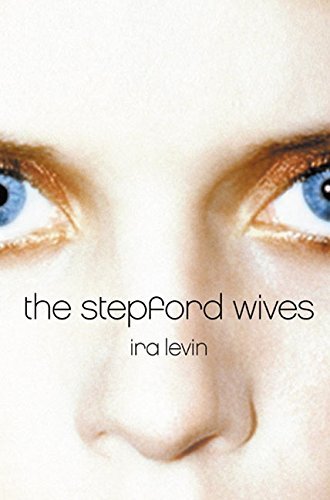 “The Stepford Wives” by Ira Levin
“The Stepford Wives” by Ira Levin
Genre: Thriller, Fiction
4/5 — The clear, straightforward way Levin writes this thriller emphasizes it in every way — both thematically and stylistically. When Joanna first interviews with the welcome wagon lady, she outlines what information she gives her first acquaintance in Stepford without revealing any to the audience because Levin only gives us the pertinent information; because it doesn’t matter what schools she and Walter went to or what firm he works at or Kim and Pete’s ages, because every man is in want of a Stepford wife. The way actions turn to lists at the climax, the repetition of noises, the way the imagined clock actually begins to tick at the end: “Glasses clink behind me.” It’s slowly terrifying in the way that the men are unassuming to the very end, seeming rational and stable if not a little too obsessed with the Men’s Association — in the way that Joanna convinces herself that she’s crazy while staring at a glinting kitchen knife. I picked up this book because of a one-off mention of it in “Robots and the People Who Love Them,” and would absolutely recommend it.
(goodreads.com)
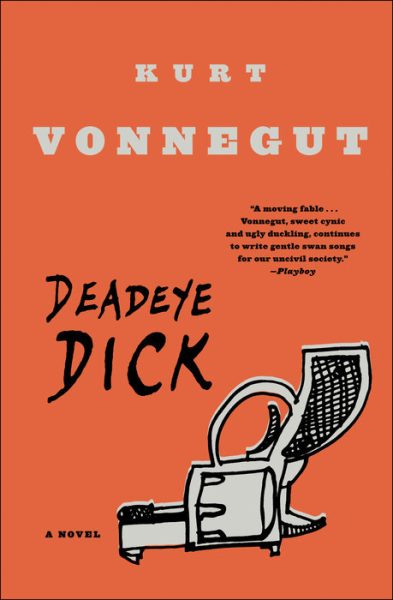 “Deadeye Dick” by Kurt Vonnegut
“Deadeye Dick” by Kurt Vonnegut
Genre: Fiction, Semi-Historical Fiction
4.25/5 — Vonnegut comes again with an analysis of life and death and identity. We are who people say we are, who we are surrounded by — we are as happy as we have been taught to be. Approaching his own story in the manner the narrator has approached his life (touting that Creole has only one tense because that was the easiest way for others to teach him — that same unaffectedness he received from his mother who wasn’t a housewife or his father when he tried to help with homework) is the only way to write this story. Going back home is all about raising ghosts — no one dies in Shangri-la, but isn’t paradise where you’re known? Maybe none of them were alive to begin with, no peepholes to open or close — maybe no one has died since the Fairchilds, their last ever wandering in search of his parachute. This isn’t my favorite of the Vonneguts I’ve read, but I’m incredibly fond of it; I would definitely recommend this book, and you should pick up “Mother Night” while you’re at it (now there’s a 5/5 Vonnegut).
(penguinrandomhouse.com)
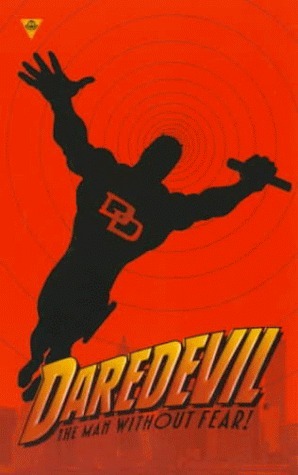 “Daredevil, The Man Without Fear: The Cutting Edge” by Madeleine E. Robins
“Daredevil, The Man Without Fear: The Cutting Edge” by Madeleine E. Robins
Genre: Thriller, Action, Superhero
3.25/5 — Listen, sometimes you peruse your local 3.5 story antique mall and find ‘90s Marvel novelizations for $3 a piece and have to pick them up. This one was a fun and quick read for sure. I don’t know if it’s just my print or a flaw among all batches, but there were a few grammar and spelling mistakes that weren’t egregious, but pulled me out of the story a bit. Robins knows all the elements of a classic thriller, but I don’t know if they were all employed correctly here — even without the perspective changes, I figured out who the Cutter was almost immediately after their IRL persona was introduced, and there were glaring pieces of evidence Matt didn’t pick up on — which offended my sensibilities as a Daredevil stan. I think if this was written solely from Daredevil’s perspective, more emblematic of a typical action/thriller, or more purposeful about what was given away in the cutscenes, I would’ve liked it more. Overall, a fun read.
(goodreads.com)
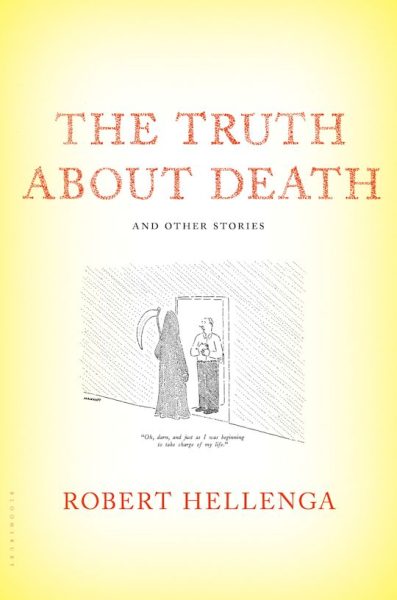 “The Truth About Death (And Other Stories)” by Robert Hellenga
“The Truth About Death (And Other Stories)” by Robert Hellenga
Genre: Novella, Short Story Collection
(“The Truth About Death”) 4.25/5 — Hellenga manages the midwest heartbreak in a beautiful way; the slowness, the silent weight, the way God lurks in every corner of the nonbelievers, the way the only myths that pervade are the ones that can hurt us and death is a self-important friend we tend to roll our eyes at. The titular novella is a relief. The Oldfields are undertakers who see death as they are supposed to, not as it is, until Hildi proclaims there is a truth about death that is evading them, that they get no further by calling death the sunset to birth’s sunrise. Funerals are a time for celebration, not partying but connection, to wash someone’s feet or hold their hand. We never do get to know the truth about death, only that it involves God and a dog — and maybe palindromes are the point, something that when read backwards changes, a reverse triumph.
(“And Other Stories”) 3.5/5 — My favorite “other stories” are “A Christmas Letter,” “I Speak a Little French,” and “Pockets of Silence.” I love that you never learn the main character’s name in ACL, and the final paragraph of POS.
(bloomsbury.com)
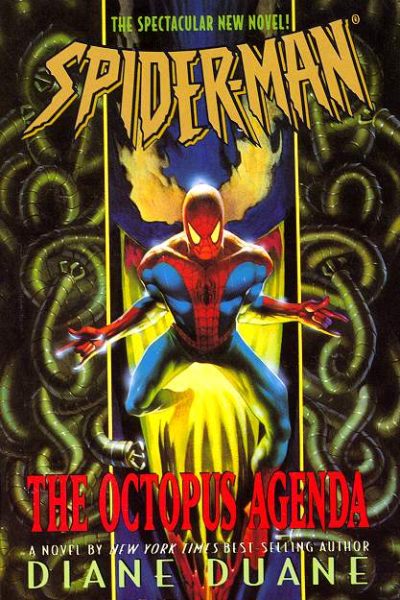 “Spider-Man: The Octopus Agenda” by Diane Duane
“Spider-Man: The Octopus Agenda” by Diane Duane
Genre: Action, Superhero
3.75/5 — Did I mention that I got multiple of these novelizations and they keep getting better? This was a fun and quick read once again. Duane rectifies a lot of the issues I had with my last foray into superhero novels: The villain plot unravelled a lot more gradually and the villain perspectives weren’t gratuitous or over-informative. I loved the juxtaposition of Spider-Man and Venom’s characters, the different ways they research cases and how it’s influenced by their day jobs. Duane’s style and voice are beyond suitable to action, especially to Spider-Man. I thought the MJ B-plot was a fun way to see how civilians see their superhero friends and partners. Overall, really balanced.
(spiderfan.org)
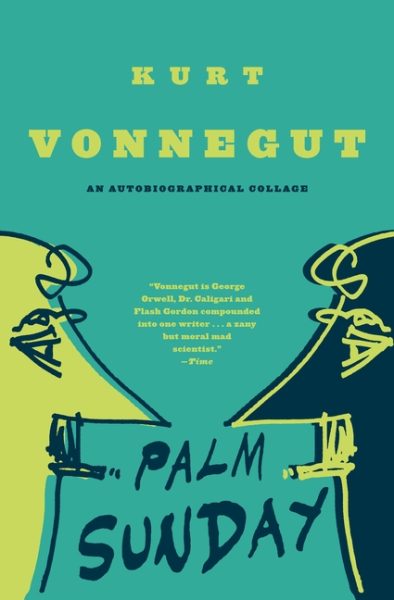 “Palm Sunday: An Autobiographical Collage” by Kurt Vonnegut
“Palm Sunday: An Autobiographical Collage” by Kurt Vonnegut
Genre: Autobiography, Essays, Collage
4.5/5 — I never quite know what to say at the end of a Vonnegut book (don’t let that fool you, though, I’m about to say a lot), there’s a unique urge to say nothing at all and to somehow open my mouth and spew all 330 pages in five seconds flat. There are parts I enjoyed more than others — parts about friends and family and books and plays “and on and on” — but what sticks with me most is that Vonnegut will never speak at my commencement address. This collage is an ode to community and art and half-assed degrees and full-assed people. I am about to praise a story that did not end “before it stopped being a story,” I fear, so I fall back on Vonnegut (p.321): “His answer was this: ‘The artist says, “I can do very little about the chaos around me, but at least I can reduce to perfect order this square of canvas, this piece of paper, this chunk of stone.’” Everybody knows that.” Amen.
(who2.com)
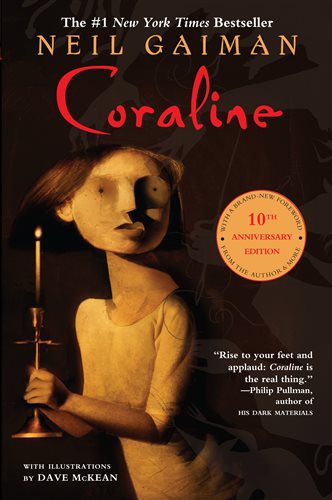 “Coraline” by Neil Gaiman
“Coraline” by Neil Gaiman
Genre: Horror, Children’s Fiction
4/5 — I hate to give this man more attention, but I did in fact read my tenth anniversary edition copy of the book after going to see the 15th anniversary remaster of the movie. To this day, “Coraline” remains terrifying and undefeated, but I have to say: The movie is better (5/5).
(ebooks.com)
 “Freakonomics: A Rogue Economist Explores the Hidden Side of Everything” by Steven D. Levitt and Stephen J. Dubner
“Freakonomics: A Rogue Economist Explores the Hidden Side of Everything” by Steven D. Levitt and Stephen J. Dubner
Genre: Economics, Social Science, Nonfiction
4.5/5 — As I learned a year before with Levitt and Dubner’s sequel — “Super Freakonomics: Global cooling, Patriotic Prostitutes, and Why Suicide Bombers Should Buy Life Insurance” (and yes I read the sequel before the first book, don’t come for me) — I am the prime audience for a witty, cynical and careful examination of culture. “Freakonomics” is the place to find two Ste(v/ph)ens “explaining how people get what they want, or need.” Asking interesting questions is the best way to get interesting answers, such as: Are people generally good? And, as acquired by Paul Feldman’s bagels, “the answer, at least 87 percent of the time, is yes.”
(freakonomics.com)
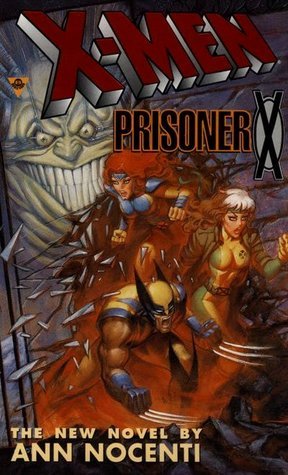 “X-Men: Prisoner X” by Ann Nocenti
“X-Men: Prisoner X” by Ann Nocenti
Genre: Thriller, Action, Superhero
4/5 — And we’re back! The superhero books I picked up last year continued on an uphill trajectory. Nocenti, by far, has my favorite voice of this self-imposed expedition; the only reason this rating isn’t higher is because she sometimes forgets to use it. There are multiple stretches of 2-5 pages where I’m completely entranced by her methodical metaphors and beautiful prose, namely: the introduction of the guerilla DJ, Gambit’s interactions with the boy on the rooftop, and Jean’s view of death row, to name a few. The most effective use of split perspectives so far, and I loved to see the relationships change and develop between characters.
(goodreads.com)
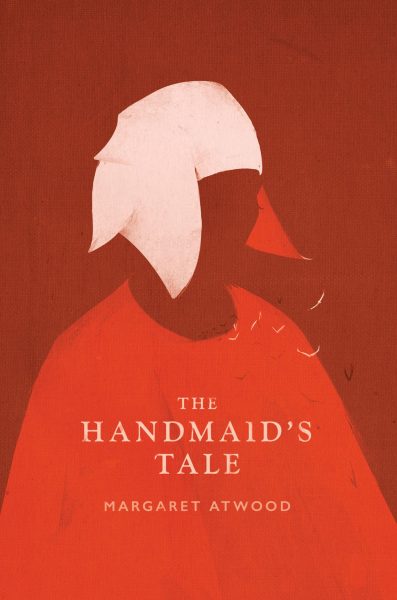 “The Handmaid’s Tale” by Margaret Atwood
“The Handmaid’s Tale” by Margaret Atwood
Genre: Science Fiction, Fiction, Dystopian
5/5 — Having read some of Atwood’s poetry, I wasn’t sure what to expect from her prose; what I got was illustrative sentences that toe the line between verse and novel. Not only was the language beautiful, but tailor-made for the narrator: Composed mainly of sharp, short sentences with extreme attention to detail with regards to the surroundings and unabashed honesty, the prose allows us to learn enough about “Offred” to understand her real name. When you’re reduced to within yourself, you create beauty, you find the poetry in things, you invent flowers; when you can only see the ground below you, you notice cracks on the sidewalk, blood on the streets, learn to live in the periphery; when no one can tell you the truth, that is the one thing you are determined to find within yourself. “Faith is only a word, embroidered” (p.292). The skill and craftsmanship in the prose is truly brought to light when juxtaposed with the speech in the final chapter — the voice is incredibly different, with a different purpose and intention. I admit, the final pages of that keynote speech made me incredibly mad — to, in retrospect, scorn a woman for not being a spy for your history books when all she was trying to do was survive. In telling her story, you are not owed answers. Saying you are grateful for the story of honesty and resilience you got does not mean much if, even privately, you consider it meager. “Offred” is flawed, maybe even cowardly, but she found the truth, and that is all you can ask of her. And it’s a truth that rings clear even today — everyone should pick up this book as soon as possible.
(goodreads.com)
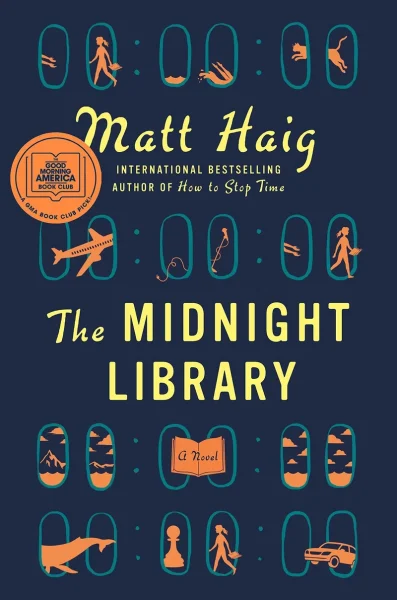 “The Midnight Library” by Matt Haig
“The Midnight Library” by Matt Haig
Genre: Fiction, Magical Realism, Mental Health
4/5 — (CW: Suicide, Suicidal Ideation) This is a lovely book, but the prose isn’t revolutionary, the character interactions and dialogue are oddly stilted in the first few chapters, especially in Nora’s first appearance in the library. I will say, as a poet, the poetry and song lyrics didn’t speak to me, sometimes they felt too simple, in prose or resolution, but there’s something so intrinsically human about this book that speaks to the part of me untouched by that pretentiousness. It’s so refreshing to hear Haig’s perspective that potential is inert, it is not wasted or doomed — the simple possibility that you could have done all these things lives inside of you, you are not wasted for not capitalizing on your potential, you are as strong as the part of yourself that could have taken you to the moon.
(npr.org)
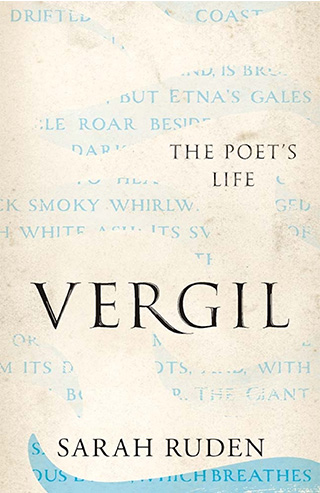 “Vergil: The Poet’s Life” by Sarah Ruden
“Vergil: The Poet’s Life” by Sarah Ruden
Genre: Historical Nonfiction, Literary Biography
4.75/5 — As a certified Latin Nerd who is unbearably fond of Vergil, this book was a joy. I was gifted my copy by my Latin teacher, the woman who introduced me to Vergil, right before I graduated high school. I have to admit that I was slow on the uptake with this one; Ruden begins almost clinically, referring to her own history as a translator, as another rural kid like myself — and Vergil apparently — that assimilates to the nearest bigger city, but offering little else in way of warmth to her subject. But, about a third of the way through the book, Ruden’s humor and passion begin showing through more clearly and it’s really a beautiful thing to see. I love this book for all it taught me and for enshrining the legacy of Vergil as succinctly as possible: “limitless.”
(sarahruden.com)
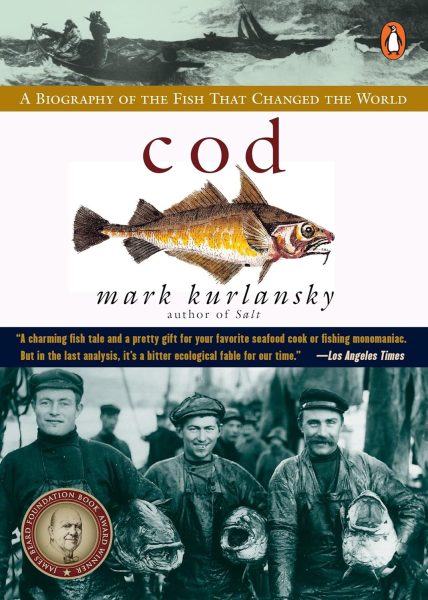 “Cod: A Biography of the Fish That Changed the World” by Mark Kurlansky
“Cod: A Biography of the Fish That Changed the World” by Mark Kurlansky
Genre: Historical Nonfiction, Environmental Nonfiction, Food History
5/5 — Genuinely one of the most enjoyable reads of my year, if not my life. So, allow me to elaborate extensively. Kurlansky has gifted me a new marine fixation: the cod fish. I know, I know — bizarre, right? But this book is absolutely mesmerizing. You never lose Kurlansky’s tone or voice throughout, it is a history told by him. He cares, he’s done the research, and now you can care too — from the integral ways cod has played a role in the majority of the major world economies; how it influenced both the slave trade and the Revolutionary War, but how it sustained a Basque economy to maintain independence. Kurlansky details how fishermen all over the world watched fish stocks deplete, were ignored by the government meant to protect their interests and industry, and are now out of work because they legally can’t fish cod during certain times of the year anymore, if at all. Kurlansky begins each chapter with a quote about cod and interjects with recipes afterwards — he even has a cookbook at the end — because cod has been so integral to so many cuisines and cultures throughout the world for so long. Now, people are losing their culture and livelihood because of the dearth of the fisheries. As Kurlansky states last: “We were forced to give up commercial hunting and to raise domesticated mammals for meat, preserving the wild ones as best we could. It is harder to kill off fish than mammals. But after 1,000 years of hunting the Atlantic cod, we know that it can be done” (p. 276). Please — if you love fish, if you keep them as pets or fish for sport, if you eat fish or have sworn never to do so again — read this book.
(markkurlansky.com)
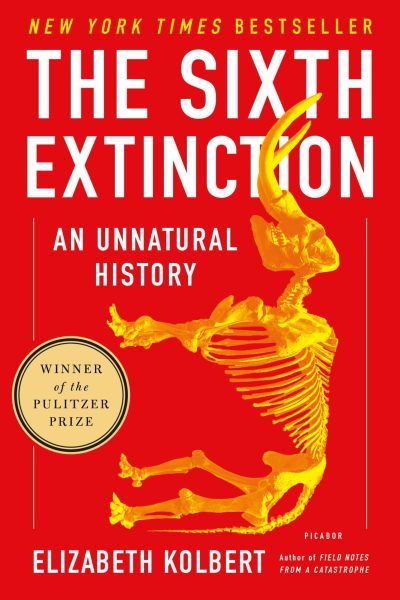 “The Sixth Extinction: An Unnatural History” by Elizabeth Kolbert
“The Sixth Extinction: An Unnatural History” by Elizabeth Kolbert
Genre: Climate Change, Nonfiction, Natural History, Science
5/5 — This book is a must read for everyone alive today. Kolbert — with her cynical, fond, amazed, riveting and powerful prose — makes extinction approachable but no less daunting. She came at the issue not as an expert, but simply willing — willing to learn, to understand, to care. It’s incredible to go through such an intensely personal and terrifying read with an author learning alongside you. To hear from someone who cares so much about finding experts, experiencing the research (the extinctions) herself, and cataloging the history through the faithful words of others. My favorite inclusion from the experts interspersed throughout this book is the anthropomorphism of their subjects — usually against scientific convention, I think it is anthropomorphism that will save the world. If humans are unique among the world, enough so that we have changed it immeasurably and many feel no remorse for doing so, humanizing everything around us should at least give us pause. Though I agree that the sixth extinction “will, unfortunately, be our most enduring legacy” (p. 269) and we will never upend that legacy, I believe we can write an addendum, a footnote: We tried our hardest to fix this mess. Even if the only things left to read that note are the giant rats that may, or may not, inherit the earth.
(us.macmillan.com)
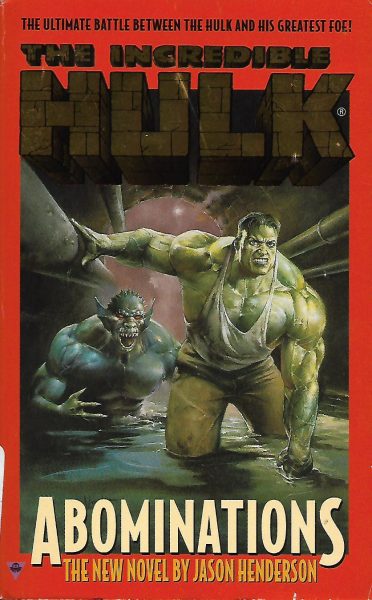 “The Incredible Hulk: Abominations” by Jason Henderson
“The Incredible Hulk: Abominations” by Jason Henderson
Genre: Thriller, Action, Superhero
4.25/5 — Henderson delivered me my favorite, and last, superhero book of the year. I didn’t put this book down, aside from going to class, and even had it in my bag for breaks. Every character was developed and had their own distinct voice — Henderson, too, had a voice throughout this novel that I loved — his frequent parentheticals and references to other media, particularly music — and though not every character was supremely 3D, you understood their motivations. Somehow, this book amounted to a study on grief, which I was not expecting. Some may be disappointed by the lack of “Hulk smashing” in this book, but I think it was much more rewarding to get to know how Bruce Banner works through his transformation, his strength, and the grief that he’ll never be able to give his wife or himself a normal life. The duality of how he and the Abomination deal with their respective transformations is stark and contemplative: Emil chooses to destroy, Bruce chooses to preserve.
(goodreads.com)
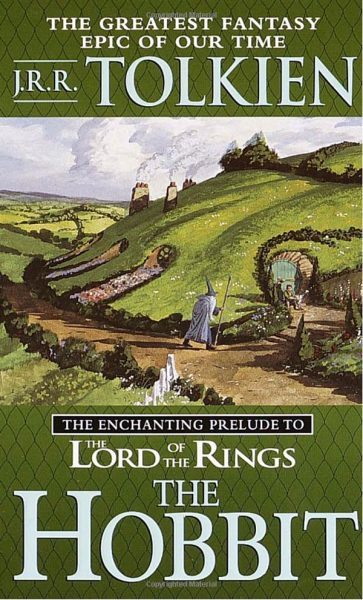 “The Hobbit” by J.R.R. Tolkein
“The Hobbit” by J.R.R. Tolkein
Genre: Fantasy, Fiction, Magic
4.75/5 — I see now why it’s called a classic. Thoroughly enjoyable and exciting! I’m a huge fan of the reluctant adventurer/confused “chosen one” trope. It was really lovely to see Bilbo come into his own throughout the book. I can’t wait to read more of Tolkien’s writing — the perspective and tone are fantastic, I love the idea of a third-person omniscient narrator that is reluctant to reveal information — until the time is right or never at all.
(spiralofhope.com)
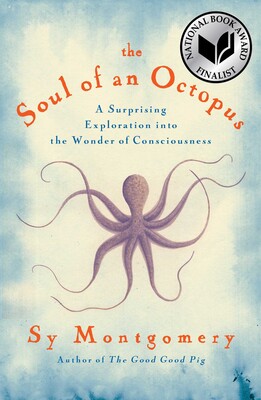 “The Soul of an Octopus: A Surprising Exploration into the Wonder of Consciousness” by Sy Montgomery
“The Soul of an Octopus: A Surprising Exploration into the Wonder of Consciousness” by Sy Montgomery
Genre: Animal Science, Nonfiction, Psychology, Memoir
4/5 — Montgomery is so personable in this and makes an effort so that the octopuses she loves are too. The utter love, care and connection in this book make it emotionally devastating and uplifting. The emotion is truly the highlight of this read. Though I found issues with the repetitiveness of some sections/facts and a bit of a dearth of research and information, I enjoyed the personal prose and observational storytelling. I suppose I was expecting a more “If Nietzsche Were a Narwhal” — a book by Justin Gregg I highly recommend to anyone that wants to know more about non-human consciousness — structure, but that’s no fault of the book, it just means the book aligns less with what I enjoy as a reader. I appreciate Montgomery’s obsession with octopuses and her intense desire to share that with others — to inspire “a deeper understanding of what it means to think, to feel, and to know” among her readers like these octopuses have done for her (p.241).
(simonandschuster.com)
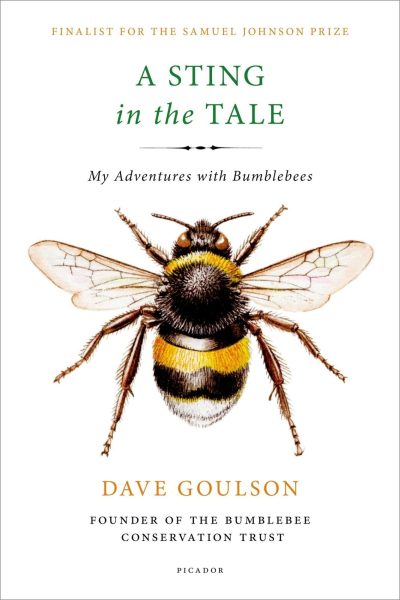 “A Sting in the Tale: My Adventures with Bumblebees” by Dave Goulson
“A Sting in the Tale: My Adventures with Bumblebees” by Dave Goulson
Genre: Nature Writing, Nonfiction
5/5 — Again, Goulson strikes a balance between the impassioned, if sometimes incompetent, citizen and the well-read, among many other things, scientist. Part memoir of “Why bees?” and part history of “Why bees?” (two very different questions), this book is the exact balance I was craving in my last read: full of both emotional anecdotes and well-worn research. It’s so lovely to read about a person, and all of their own people, who care so much about bees that they do something about it — whether that be founding the Bumblebee Conservation Trust, training bee sniffer dogs (for science), starting home gardens (and renovating derelict French farms), transporting bees in hair rollers (for reintroduction), taping traffic cones to sides of buildings (it’s relevant, I swear), or simply going on walks and calling in the bees you find on your own street. There’s always something we can do to save the bees.
(us.macmillan.com)
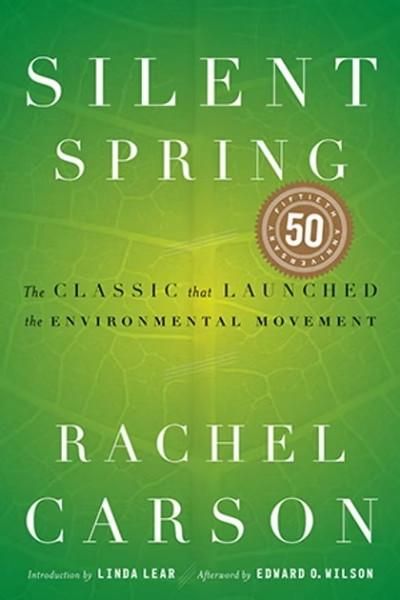 “Silent Spring” by Rachel Carson
“Silent Spring” by Rachel Carson
Genre: Nonfiction, Science, Environment, Ecology
5/5 — Allow me to be long-winded. I’ve been looking forward to this book for years and Rachel Carson did not disappoint. I understand now — how one woman can start a movement, how one book can change the world. None of the literature I’ve read about nature, about science as a whole, has come close to “Silent Spring.” The science is the root of this poetry, in all honesty, but it is written for the human in all of us — the citizen, the person with the world in their backyard. Evidence-based but easy to understand, firm but not alarmist, Carson simply aims to synthesize all of the research already done at the time into one definitive tome that says, “Yes, we are killing the earth and yes, we can do something about it.” The point is not to poison our environment without discrimination but to draw on the checks and balances Nature already has in place to make this world safe for its less-than-“nuisance” creatures, as well as ourselves. That we delved into bottles marked with skulls and crossbones at all is the fault of an industry and complicit governmental agencies that profit from a system of enforced ignorance, wherein they pay spray pilots by the gallon and engage in propaganda wars against ants. Carson tells us that we do not have to be complicit too. “Silent Spring” is beautiful, enraging and inspiring, and it rings true all these years after its publication. The point is that we share this earth, that no single living thing exists in a vacuum apart from every other living thing, that “we stand now where two roads diverge. But unlike the roads in Robert Frost’s familiar poem, they are not equally fair. The road we have long been traveling is deceptively easy, a smooth superhighway on which we progress with great speed, but at its end lies disaster. The other fork of the road — the one ‘less traveled by’ — offers our last, our only chance to reach a destination that assures the preservation of our earth. The choice, after all, is ours to make” (p.278).
(rachelcarson.org)
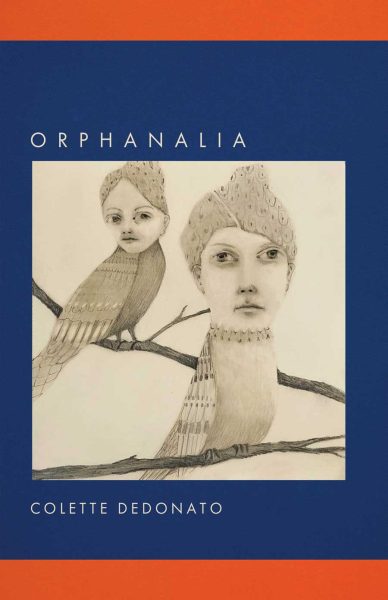 “Orphanalia” by Colette DeDonato
“Orphanalia” by Colette DeDonato
Genre: Poetry
5/5 — To quote DeDonato: “This is apt.” This collection of poems is about grief, as you may guess from the title, which DeDonato defines as follows: “Orphanalia \or-fen-ney-lee-uh\ n: 1: miscellaneous articles or trappings related to loss, grief, and severance from the living. 2: Evidence of sundering from the terrible dazzling perpetual. 3: a lamentation given by the line separated from its related text. See also orphan: fr. Gk orphanos; a child without parents; a line separated from its related text.” This collection was a massive undertaking for me, chiefly because I annotated all 46 poems, then because it forces you to face grief and loss you’ve forgotten or hadn’t known you had in you. This collection is one great epitaph — a literal collecting, a cementing of the dead: Do not forget me. DeDonato asks in one poem, “On a scale of 1-10, how much existence do you think you will need?” With witty, cynical, mournful, cohesive, visionary poetry like this out there — as much as this world will give me.
(freegalileo.com)
So, that was my year in books — in order and everything.
I don’t know if I checked the boxes everyone looks for in book reviews, I barely read them myself, but this is what I thought pertinent to note in my Notes app when I finished each of these books.
Some are much longer winded than others, some leaning towards creative writing of their own, but I’m incredibly fond of my Notes app book review table, and I hope you enjoyed it too.
Almost all of the books on my list were bought second-hand or borrowed from the library, which I encourage you to do immensely. Find the closest second-hand bookstore and go browsing, come in with ideas and loosen your expectations, find odd gems and take them home and love them when they fall apart. Go get a library card, even if you think you won’t use it often — the easiest way to be radical is supporting the libraries (it’s even free) and maintaining third spaces and fighting against the banning of books.
Keep your libraries and bookstores alive, and keep reading. I beg of you.

